The Catalyst Killing - [39]
‘No. The door that had been ajar the night before was closed in the morning, even though I woke up before Kristine. I’m afraid it is possibly not a completely irrelevant detail.’
I gave her a meaningful nod, but was still not quite sure where this was leading. She was fortunately now on a roll, and carried on without prompting.
‘I really didn’t mean to hide anything from you. But it’s quite a step to talk to the police about a friend’s private life. Especially as I am still not sure whether I saw what I thought I saw, or whether I dreamed it.’
This time my nod was encouraging and I assured her that I did not blame her in anyway. But I added that it could be very important, and that I was certain that she had seen what she thought she had seen.
She nodded.
‘Unfortunately, I also think I did. In fact I am increasingly certain that what I saw that night was real and not a nightmare.’
Then she stopped again and looked at me expectantly.
I gave her the little push she needed.
‘And that was…’
She met me, but still only halfway.
‘Well, it was in fact me rather than Kristine who had a headache. I normally sleep very heavily, and Kristine knew that. But I had a headache and it woke me up sometime in the middle of the night. I still don’t know when it was, but that doesn’t really matter. It was dark outside, so I guess it was the middle of the night.’
We were still beating about the bush. And my patience was wearing thin.
‘So, despite the fact it was dark, you still saw something that you did not expect to see, something so unexpected that you were not sure if you had dreamed it or not the next day. But you had seen it. And to stop me from putting words in your mouth, what you saw was…’
She cooperated, fortunately, as I was still unsure about what she was going to tell me.
‘Despite the dark, and with the proviso that I may have dreamed it, I saw Falko Reinhardt. In our room, in the bed – on top of Kristine.’
I should have realized. But the news was still a small shock, especially as it came from Miriam Filtvedt Bentsen’s delightful little mouth.
‘And Kristine certainly did not seem to be unhappy about the situation. It’s not surprising that the whole thing seemed rather unreal to me, and that I still struggle to believe that it was true.’
Miriam Filtvedt Bentsen’s hand touched the cross she wore around her neck, consciously or unconsciously. Her voice was apologetic when she continued.
‘I have been so unsure as to whether I should tell you or not. It was bad enough to have to tell the police about a friend’s private life, but on top of that I really wasn’t sure if it was the truth or a dream.’
Again, I nodded. Then she did too.
We nodded in rhythm and drove in silence for a short while before I said that I fully understood her dilemma. On the other hand, the police was in fact me, and the context was an investigation into the murder of another friend of hers. In other words, she should tell me immediately if there was anything else of possible importance she had not mentioned.
Miriam Filtvedt Bentsen quickly replied that she could not think of anything else, but that she would tell me if she thought of something later.
So I followed up by saying that her explanation as to why she had not slept the following night was now clear enough, but that she could explain it for me again all the same.
I had expected a blush, or some other form of visible reaction. But there was nothing. Miriam Filtvedt Bentsen answered without any awkwardness that she was quite curious by nature, and had found being so unsure very perplexing. So she had stayed awake in the hope of confirmation the following night.
‘But it didn’t happen. I can guarantee that Falko was not in our room the night he disappeared. And as far as I could hear, he was not out in the hall, either,’ she added hastily.
I asked how certain she was today that what she had seen that night was real and not a dream. She gave it some thought and then answered in a steady voice: ‘At least ninety per cent. There was a long dark hair on the sheet the following day, which could not be explained in any other way. And Kristine, who was otherwise normally so calm, seemed to be in more of a state than Marie in the hours after Falko had vanished. I was interested to see if she would say anything to me later. But she never said a word, and I didn’t want to ask.’
I nodded and said that I thought she had handled a difficult situation well. She thanked me warmly and gave me an almost mischievous little smile.
For the final short stretch up to Vestre Slidre, we drove in comfortable if pensive silence. It felt as though we were thinking the same thing. In short, Kristine Larsen might suddenly have had a strong motive for killing Marie Morgenstierne, especially if Falko Reinhardt was still out there somewhere.
A few minutes later we stopped outside the cabin where he had so mysteriously disappeared exactly two years and two days ago.
IV
My expectations regarding the standard of Martin Morgenstierne’s cabin were considerable, but it surpassed them. It was more like a large family home with its four bedrooms, kitchen, living room and bathroom, complete with toilet and shower. But it would appear that it had been standing unused for two years now. According to Miriam Filtvedt Bentsen, the bed linen belonged to the cabin and was the same as had been on the beds that fateful night. She still remembered the night in impressive detail, and promptly pointed out the living-room window where she had seen the masked man peer in earlier on in the evening.
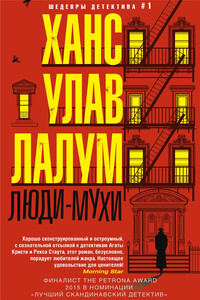
Убит бывший лидер норвежского Сопротивления и бывший член кабинета министров Харальд Олесен. Его тело обнаружено в запертой квартире, следов взлома нет, орудие убийства отсутствует. На звук выстрела к двери Олесена сбежались все соседи, но никого не увидели. Инспектор уголовного розыска Колбьёрн Кристиансен считает, что убийство, скорее всего, совершил кто-то из них. Более того, он полагает, что их показания лживы.
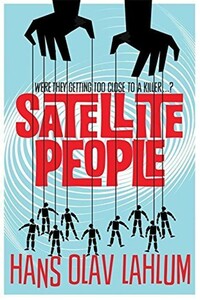
A gripping, evocative, and ingenious mystery which pays homage to Agatha Christie, Satellite People is the second Norwegian mystery in Hans Olav Lahlum's series. Oslo, 1969: When a wealthy man collapses and dies during a dinner party, Norwegian Police Inspector Kolbjorn Kristiansen, known as K2, is left shaken. For the victim, Magdalon Schelderup, a multimillionaire businessman and former resistance fighter, had contacted him only the day before, fearing for his life. It soon becomes clear that every one of Schelderup's 10 dinner guests is a suspect in the case.
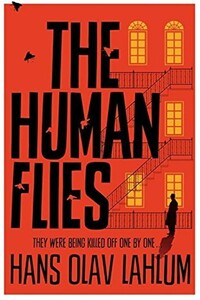
Oslo, 1968: ambitious young detective Inspector Kolbjorn Kristiansen is called to an apartment block, where a man has been found murdered. The victim, Harald Olesen, was a legendary hero of the Resistance during the Nazi occupation, and at first it is difficult to imagine who could have wanted him dead. But as Detective Inspector Kolbjorn Kristiansen (known as K2) begins to investigate, it seems clear that the murderer could only be one of Olesen's fellow tenants in the building. Soon, with the help of Patricia – a brilliant young woman confined to a wheelchair following a terrible accident – K2 will begin to untangle the web of lies surrounding Olesen's neighbors; each of whom, it seems, had their own reasons for wanting Olesen dead.
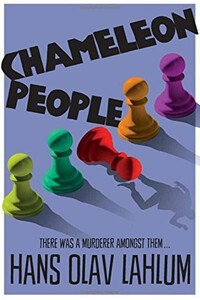
From the international bestselling author, Hans Olav Lahlum, comes Chameleon People, the fourth murder mystery in the K2 and Patricia series.1972. On a cold March morning the weekend peace is broken when a frantic young cyclist rings on Inspector Kolbjorn 'K2' Kristiansen's doorbell, desperate to speak to the detective.Compelled to help, K2 lets the boy inside, only to discover that he is being pursued by K2's colleagues in the Oslo police. A bloody knife is quickly found in the young man's pocket: a knife that matches the stab wounds of a politician murdered just a few streets away.The evidence seems clear-cut, and the arrest couldn't be easier.
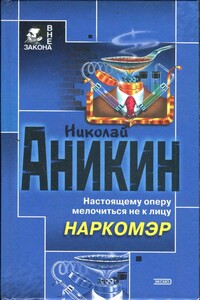
Тупик. Стена. Старый кирпич, обрывки паутины. А присмотреться — вроде следы вокруг. Может, отхожее место здесь, в глухом углу? Так нет, все чисто. Кто же сюда наведывается и зачем? И что охраняет тут охрана? Да вот эту стену и охраняет. Она, как выяснилось, с секретом: время от времени отъезжает в сторону. За ней цех. А в цеху производят под видом лекарства дурь. Полковник Кожемякин все это выведал. Но надо проникнуть внутрь и схватить за руку отравителей, наживающихся на здоровье собственного народа. А это будет потруднее…
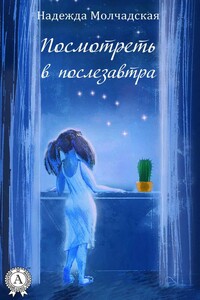
«Посмотреть в послезавтра» – остросюжетный роман-триллер Надежды Молчадской, главная изюминка которого – атмосфера таинственности и нарастающая интрига.Девушка по имени Венера впадает в кому при загадочных обстоятельствах. Спецслужбы переправляют ее из закрытого городка Нигдельск в Москву в спецклинику, где известный ученый пытается понять, что явилось причиной ее состояния. Его исследования приводят к неожиданным результатам: он обнаруживает, что их связывает тайна из его прошлого.
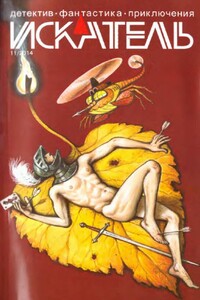
«ИСКАТЕЛЬ» — советский и российский литературный альманах. Издаётся с 1961 года. Публикует фантастические, приключенческие, детективные, военно-патриотические произведения, научно-популярные очерки и статьи. В 1961–1996 годах — литературное приложение к журналу «Вокруг света», с 1996 года — независимое издание.В 1961–1996 годах выходил шесть раз в год, в 1997–2002 годах — ежемесячно; с 2003 года выходит непериодически.Содержание:Анатолий Королев ПОЛИЦЕЙСКИЙ (повесть)Олег Быстров УКРАДИ МОЮ ЖИЗНЬ (окончание) (повесть)Владимир Лебедев ГОСТИ ИЗ НИОТКУДА.
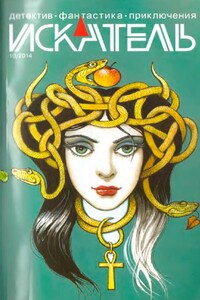
«ИСКАТЕЛЬ» — советский и российский литературный альманах. Издается с 1961 года. Публикует фантастические, приключенческие, детективные, военно-патриотические произведения, научно-популярные очерки и статьи. В 1961–1996 годах — литературное приложение к журналу «Вокруг света», с 1996 года — независимое издание.В 1961–1996 годах выходил шесть раз в год, в 1997–2002 годах — ежемесячно; с 2003 года выходит непериодически.Содержание:Олег Быстров УКРАДИ МОЮ ЖИЗНЬ (повесть);Петр Любестовский КЛЕТКА ДЛЯ НУТРИИ (повесть)
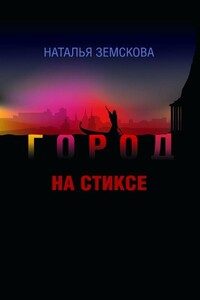
Наталья Земскова — журналист, театральный критик. В 2010 г. в издательстве «Астрель» (Санкт-Петербург) вышел её роман «Детородный возраст», который выдержал несколько переизданий. Остросюжетный роман «Город на Стиксе» — вторая книга писательницы. Молодая героиня, мечтает выйти замуж и уехать из забитого новостройками областного центра. Но вот у неё на глазах оживают тайны и легенды большого губернского города в центре России, судьбы талантливых людей, живущих рядом с нею. Роман «Город на Стиксе» — о выборе художника — провинция или столица? О том, чем рано или поздно приходится расплачиваться современному человеку, не верящему ни в Бога, ни в черта, а только в свой дар — за каждый неверный шаг.
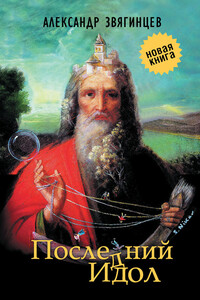
В сборник «Последний идол» вошли произведения Александра Звягинцева разных лет и разных жанров. Они объединены общей темой исторической памяти и личной ответственности человека в схватке со злом, которое порой предстает в самых неожиданных обличиях. Публикуются рассказы из циклов о делах следователей Багринцева и Северина, прокуроров Ольгина и Шип — уже известных читателям по сборнику Звягинцева «Кто-то из вас должен умереть!» (2012). Впервые увидит свет пьеса «Последний идол», а также цикл очерков писателя о событиях вокруг значительных фигур общественной и политической жизни России XIX–XX веков — от Петра Столыпина до Солженицына, от Александра Керенского до Льва Шейнина.